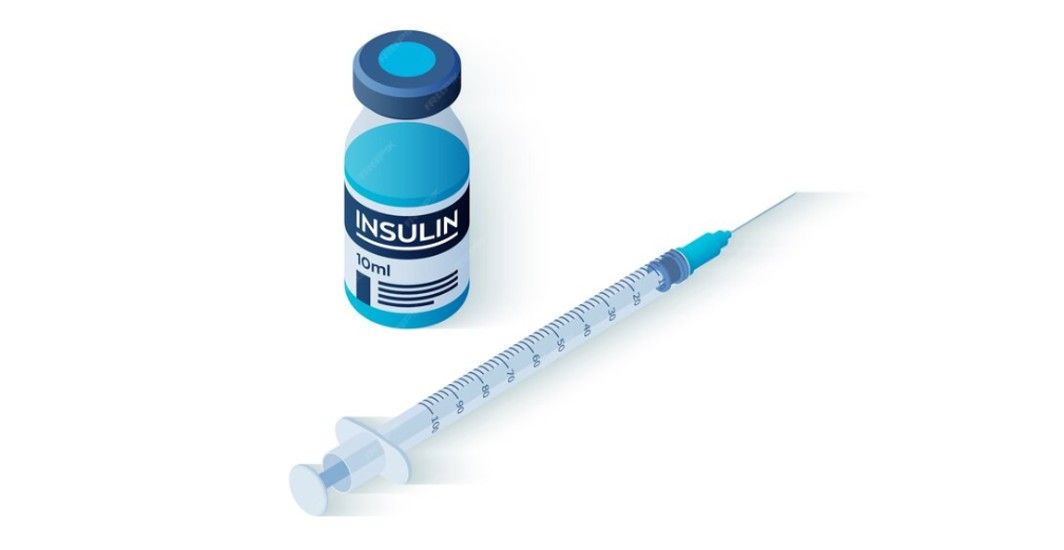Diabetes Management
Can People with Diabetes Donate Blood?
1 min read
By Apollo 24|7, Published on - 23 July 2024
Share this article
0
0 like
.jpg?tr=q-80)
Are you living with diabetes and wondering if you can donate blood? The answer is a resounding "yes." With the right precautions, individuals with well-controlled diabetes can indeed be potential lifesavers by donating blood.
Eligibility for Diabetics to Donate Blood
If you have type 1 or type 2 diabetes and it is well-managed, you are eligible to donate blood. The key requirement is being symptom-free for at least 24 hours before blood donation.
Precautions and Considerations
Before donating blood, certain precautions need to be considered:
- Blood Sugar Control: Make sure your blood sugar levels are under control.
- Symptom-Free: You must be free from symptoms such as low or high blood sugar (hypoglycaemia or hyperglycaemia) for at least 24 hours.
- Medical Clearance: It's vital to get clearance from your doctor before donating.
- Inform about Medication: If you're on insulin or other diabetes medication, inform the blood bank staff about it.
- Monitor Blood Sugar: Keep a close eye on your blood sugar levels post-donation.
Additional Tips
Hydration is crucial before and after donation to prevent dehydration. Resting helps your body recover from the donation process. Always consult your doctor if you have any concerns about donating blood.
By adhering to these guidelines and precautions, individuals with diabetes can safely donate blood and contribute to saving lives.
Moreover, effectively managing your diabetes aids in safe blood donation too. Enrolling in a comprehensive plan like the Apollo Super 6 programme can be instrumental in managing your diabetes holistically. This personalised support programme focuses on improving diet, increasing physical activity, and providing ongoing support to manage type 2 diabetes.
Diabetes Management
Consult Top Diabetologists
View AllLeave Comment
Recommended for you

Diabetes Management
What Influences Insulin Action?
Insulin plays a major role in managing diabetes by regulating blood sugar levels. However, its effectiveness may be influenced by various factors, including insulin sensitivity and resistance, injection technique and site, blood flow and temperature, levels of physical activity, hormone levels, and the specific properties of the insulin being used.
.jpg?tr=q-80)
Diabetes Management
Do Socioeconomic Factors Influence Diabetes and its Management?
Diabetes prevalence in India is influenced by various socioeconomic factors such as income and urban-rural differences. These factors also affect effective disease management. Overcoming these challenges demands comprehensive public health strategies and personal commitment towards better health. Consider joining programs like Apollo Super 6 for a holistic approach towards managing diabetes effectively.
.jpg?tr=q-80)
Diabetes Management
Best Tips for Managing Diabetes with Food Allergies
Managing diabetes with food allergies is a balancing act that requires careful dietary planning and regular consultations with your doctors. Incorporating nutrient-rich foods, identifying and avoiding allergens, addressing micronutrient deficiencies, and staying hydrated are key strategies. An integrated approach, coupled with support from programmes like Apollo Super 6, can help you manage this challenge successfully.
Subscribe
Sign up for our free Health Library Daily Newsletter
Get doctor-approved health tips, news, and more.
Visual Stories

8 Fruits That are Incredibly Healthy for Diabetes
Tap to continue exploring
Recommended for you

Diabetes Management
What Influences Insulin Action?
Insulin plays a major role in managing diabetes by regulating blood sugar levels. However, its effectiveness may be influenced by various factors, including insulin sensitivity and resistance, injection technique and site, blood flow and temperature, levels of physical activity, hormone levels, and the specific properties of the insulin being used.
.jpg?tr=q-80)
Diabetes Management
Do Socioeconomic Factors Influence Diabetes and its Management?
Diabetes prevalence in India is influenced by various socioeconomic factors such as income and urban-rural differences. These factors also affect effective disease management. Overcoming these challenges demands comprehensive public health strategies and personal commitment towards better health. Consider joining programs like Apollo Super 6 for a holistic approach towards managing diabetes effectively.
.jpg?tr=q-80)
Diabetes Management
Best Tips for Managing Diabetes with Food Allergies
Managing diabetes with food allergies is a balancing act that requires careful dietary planning and regular consultations with your doctors. Incorporating nutrient-rich foods, identifying and avoiding allergens, addressing micronutrient deficiencies, and staying hydrated are key strategies. An integrated approach, coupled with support from programmes like Apollo Super 6, can help you manage this challenge successfully.

